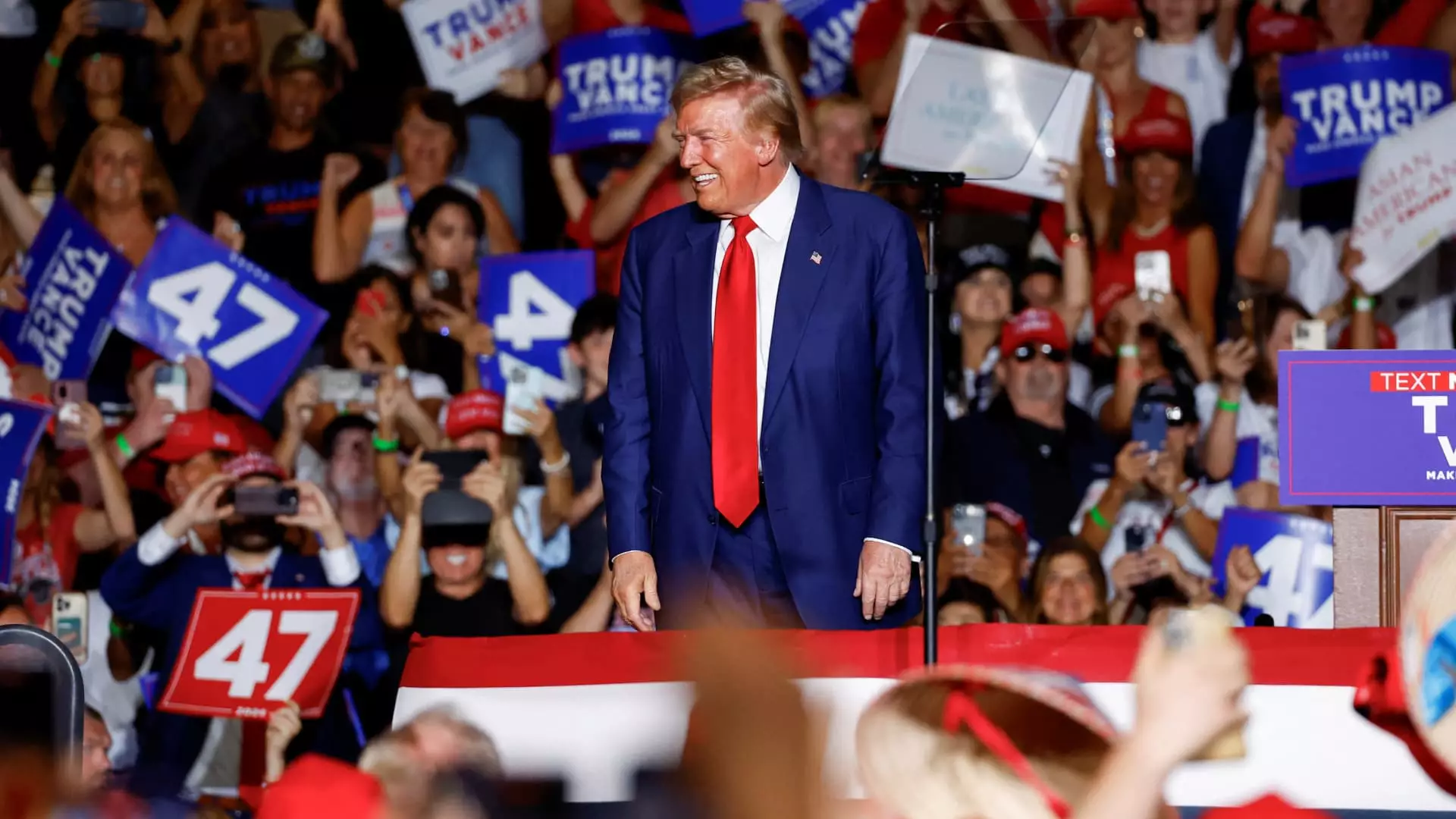On the pivotal Election Day, the stock of Trump Media & Technology experienced notable fluctuations, with a surge attributed to growing investor speculation that another Trump presidency might enhance the company’s business prospects. Traditionally, market players view the stock trading under the ticker DJT, which stands for Donald J. Trump, as indicative of the former president’s political fortunes. This speculative atmosphere has led traders to treat the stock as a bellwether for Trump’s chances in the presidential race, highlighting an intersection between politics and market dynamics that often engenders volatility.
This year has been a rollercoaster for Trump Media. The stock price has nearly doubled since the beginning of 2023, initially garnering significant momentum. However, the recent weeks leading up to Election Day painted a different picture, as the stock plunged by 33%, revealing how quickly investor sentiment can shift. Compounding this uncertainty, Vice President Kamala Harris seemingly gained traction in her campaign, posing a serious challenge to Trump’s ambitions, which undoubtedly influenced DJT’s stock performance. Nonetheless, it rebounded sharply by about 12% just before the elections, highlighting the unpredictable nature of political markets.
Jay Woods, chief global strategist at Freedom Capital Markets, articulated the frantic trading environment surrounding Trump Media, likening it to “GameStop on steroids.” This comparison draws attention to the frenzied yet often irrational trading behavior exhibited by retail investors, particularly those participating in stock discussions on platforms such as Reddit’s WallStreetBets. The fervor surrounding DJT stock is reminiscent of the meme stock phenomenon that captured the investment community’s attention during the GameStop incident in early 2021. Such dynamics showcase the significant impact that social media and retail investors can have on stock performance, diverging from traditional institutional trading metrics.
As the market reacted to the evolving political narrative, the polling data added another layer of complexity to the story. Recent surveys indicated a tight race between Trump and Harris, with both candidates garnering approximately 49% support from voters. This parity in polling reflects the uncertainty in the political landscape and contributes to the stock’s volatility. Investors often look to these indicators to gauge market direction, and the close race could mean that optimism for DJT depends genuinely on the outcomes of political contests and economic conditions.
Although DJT’s sharp surges and plummets might present lucrative short-term opportunities for traders, seasoned investors are advised to remain cautious. Woods underscores that, despite the excitement, the long-term metrics for Trump Media and Technology are puzzling. The volatile spikes often do not align with standard valuation models or business fundamentals, emphasizing that while day trading can yield immediate rewards, it could also lead to substantial losses when the political winds change. Thus, as the political landscape evolves, so too will the complexities of investing in politically tied companies, requiring vigilant analysis and prudent decision-making by investors navigating these choppy waters.

